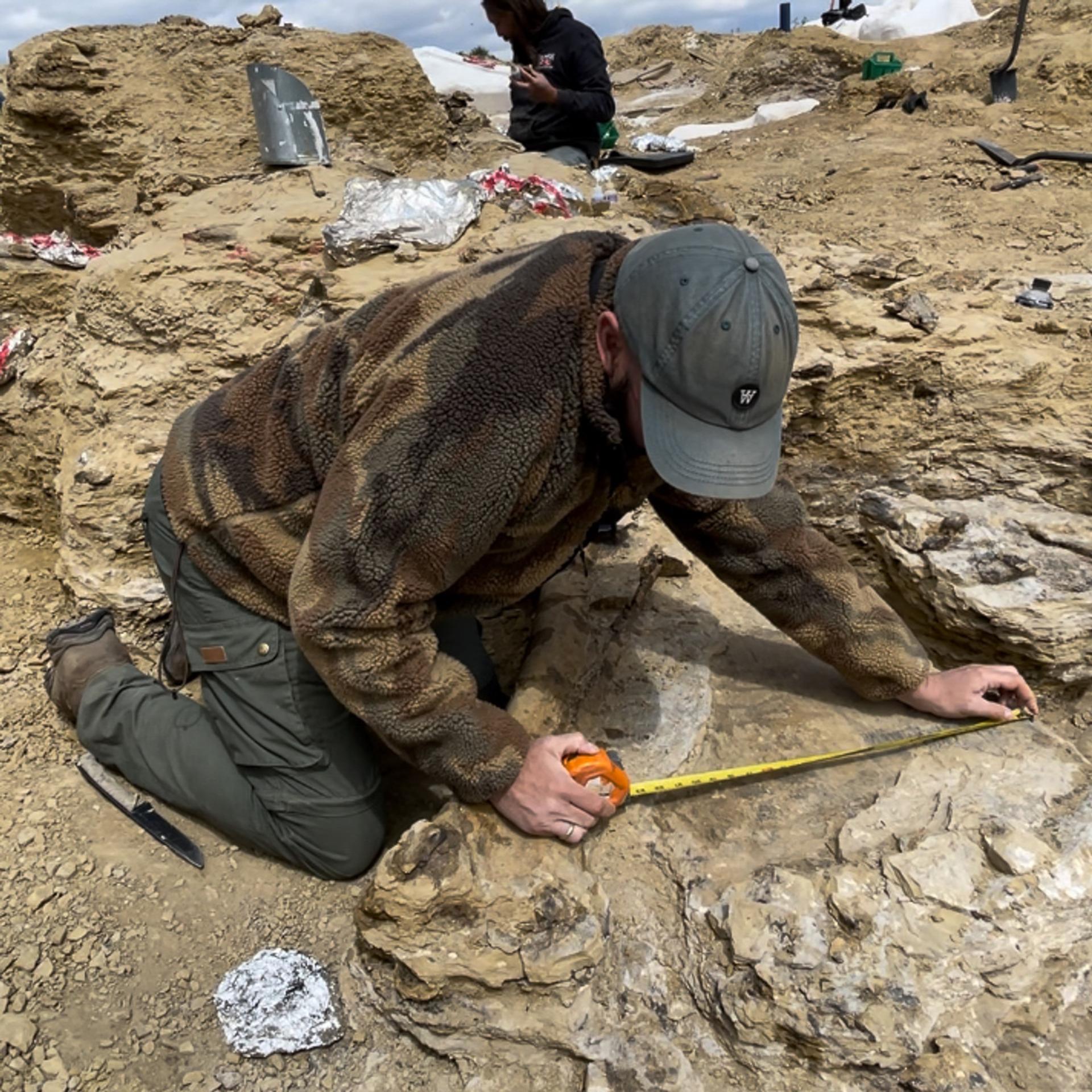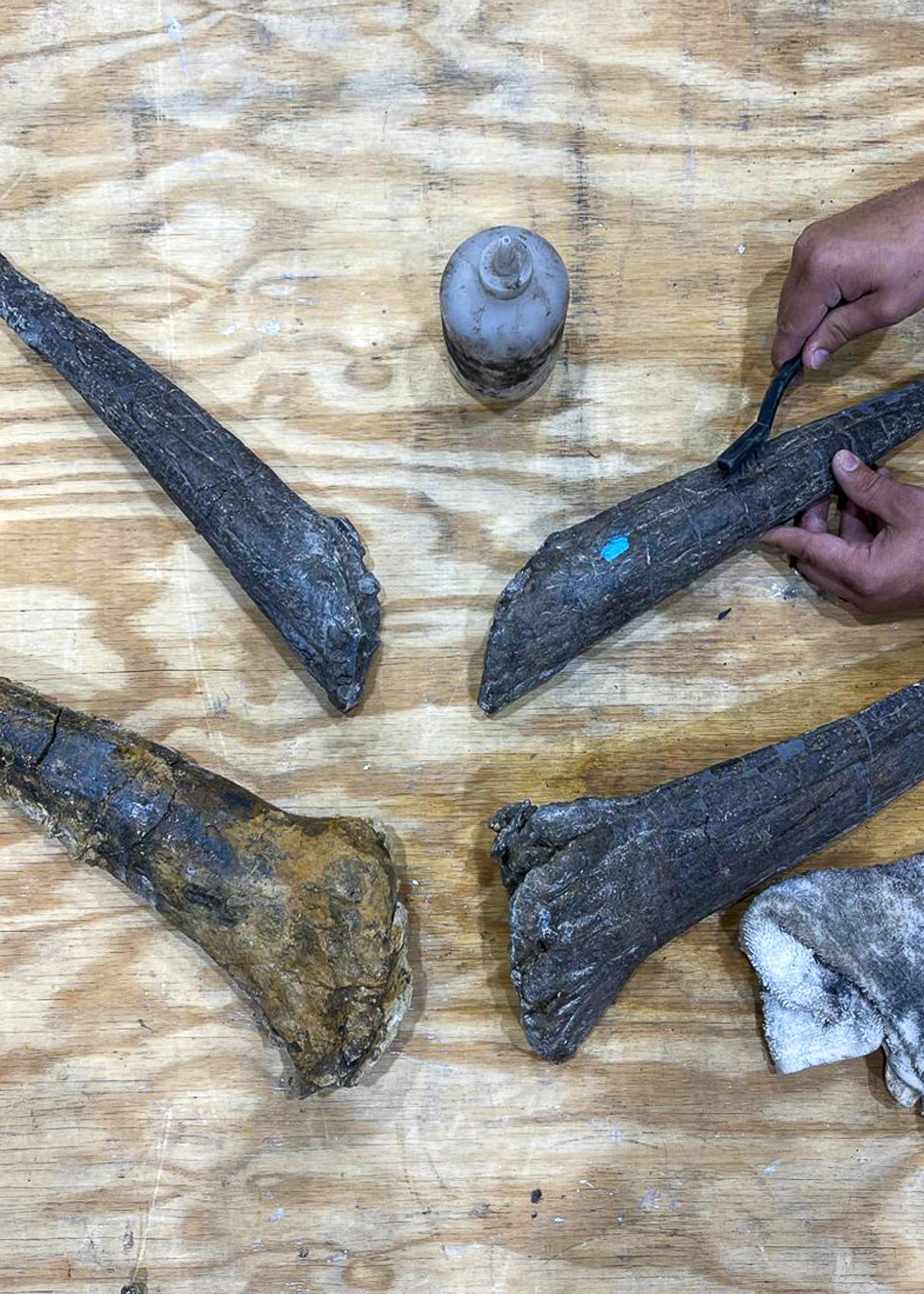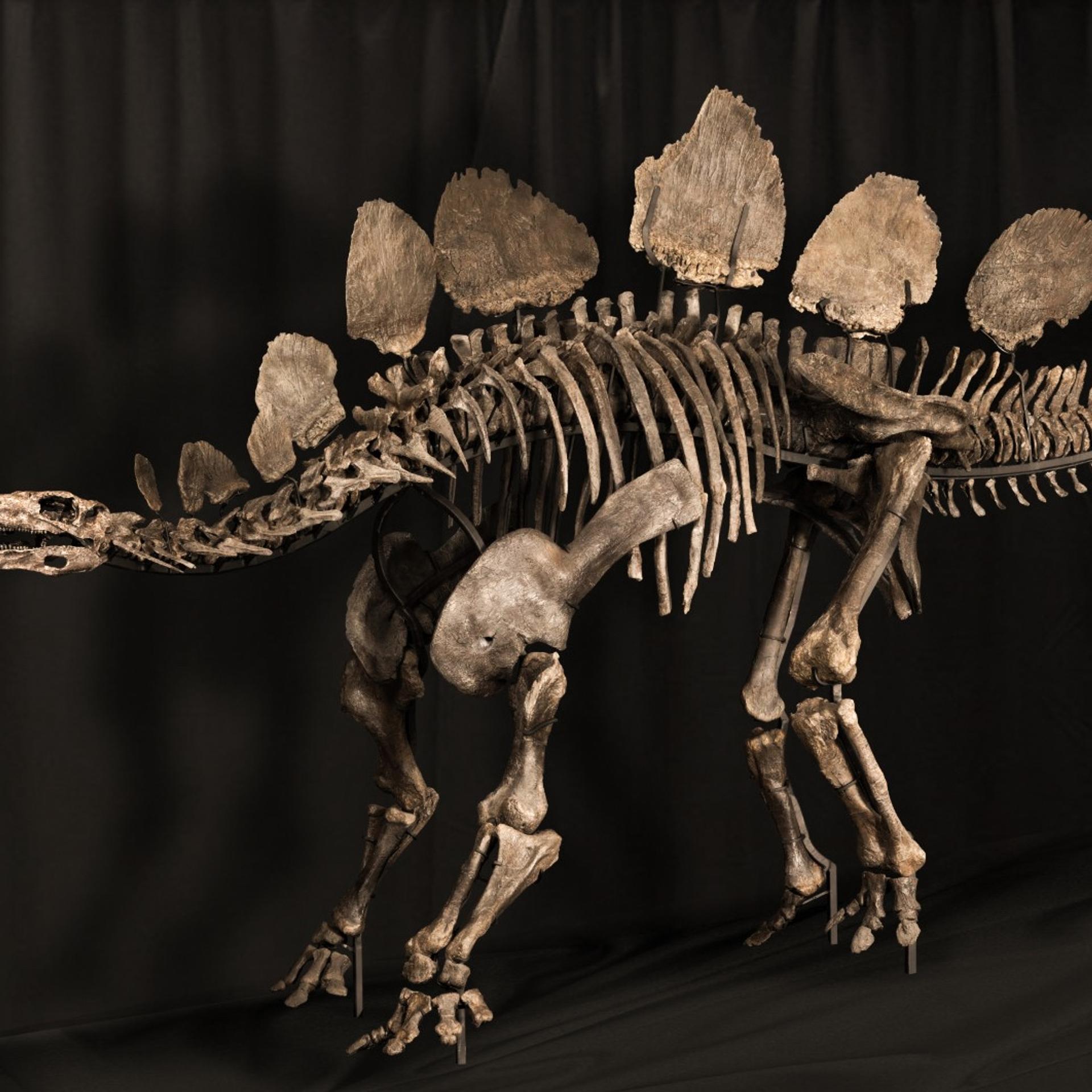Hesperosaurus mijosi
Journey into the Jurassic
Our Stegosaur journey begins! We're thrilled to announce the upcoming arrival of our newest addition, the magnificent Stegosaurus (Hesperosaurus mjosi), set to make its grand debut at the Museum of Evolution in 2025. Follow along for exclusive behind-the-scenes updates as we prepare for this exciting unveiling and continue to bring Earth's prehistoric past to life!
Part 1: Our Stegosaur Journey Begins
A world-class discovery

Discovered in Wyoming in 2022, this incredible stegosaur is undergoing careful restoration as part of a groundbreaking scientific effort. As the fossil is prepared for display, we invite you to follow our journey with exclusive updates, behind-the-scenes insights, and fascinating details about the process. This monumental addition to our collection reaffirms our mission to bring world-class dinosaur skeletons to the public.
Part 2: Rare finds
Skulls, femurs and tail spikes intact

We have uncovered additional details that confirm this Hesperosaurus as one of the most complete specimens ever found, featuring all four intact tail spikes and a rare complete skull. These findings offer valuable insights into its anatomy and behavior, with the exhibit set to debut in 2025.
Part 3: 80% intact
Denmark Gets Its First Stegosaurus: A world-class, iconic dinosaur lands at the Museum of Evolution

A world sensation! An 80% complete fossil, discovered in Wyoming, USA, has captured the attention of paleontologists, dinosaur enthusiasts, and the media – all eyes are now on Lolland. Kicking off the season on March 29, the Museum of Evolution will proudly unveil Denmark’s first-ever exhibition of a 7-meter-long, 3-meter-tall Stegosaurus (Hesperosaurus mjosi). This iconic dinosaur, famous for its distinctive tail spikes and large back plates, roamed the Earth during the late Jurassic period, approximately 157-152 million years ago.
